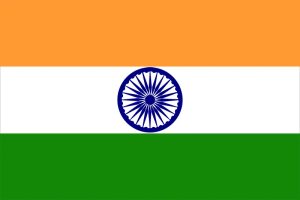İnformation about India
Tags: india, india information, information

India, a vast and diverse country, holds a rich tapestry of history, culture, and tradition. Situated in South Asia, it is the seventh-largest country by land area and the second-most populous nation in the world. From the ancient Indus Valley Civilization to its present status as a rapidly developing economy, India has witnessed a remarkable journey.
Historically, India has been a cradle of civilization, with evidence of human habitation dating back to the Stone Age. The Indus Valley Civilization, one of the world’s oldest urban cultures, flourished around 3300–1300 BCE, showcasing advanced urban planning and a writing system yet to be fully deciphered. Over the centuries, various empires and dynasties, such as the Maurya, Gupta, Mughal, and Chola, have left indelible marks on India’s cultural and architectural landscape.
In 1947, India gained independence from British rule, marking a pivotal moment in its history. The Indian Constitution, adopted in 1950, established the world’s largest democracy, with a parliamentary system of government. Jawaharlal Nehru, India’s first Prime Minister, played a crucial role in shaping the nation’s early years, focusing on economic development and social justice.
Geographically, India boasts diverse landscapes, ranging from the Himalayan mountain range in the north to the coastal regions in the south. The Ganges and Yamuna rivers, considered sacred in Hinduism, flow through the northern plains, supporting a significant population. India’s biodiversity is immense, with diverse flora and fauna inhabiting its forests, deserts, and coastal areas.
India is known for its cultural vibrancy, manifested in its languages, religions, festivals, and arts. Hindi and English are the official languages, but the country is linguistically diverse, with numerous regional languages spoken. Hinduism, Islam, Christianity, Sikhism, Buddhism, and Jainism are among the major religions, contributing to a pluralistic society.
The arts and literature in India have a rich heritage. Ancient texts like the Vedas and Upanishads laid the foundation for philosophical thought, while classical arts such as Bharatanatyam and Kathak continue to thrive. Indian cinema, with the Bollywood industry at its forefront, has gained global recognition for its colorful and musical productions.
Economically, India has experienced significant growth in recent decades, becoming one of the world’s fastest-growing major economies. Information technology, pharmaceuticals, and manufacturing are key sectors contributing to its economic prowess. However, challenges such as poverty, inequality, and environmental degradation persist, requiring ongoing efforts for sustainable development.
Socially, India grapples with issues of caste discrimination, gender inequality, and communal tensions. Initiatives for education and empowerment aim to address these challenges and create a more inclusive society. Notably, Indian women have played prominent roles in various fields, challenging stereotypes and contributing to the nation’s progress.
India’s geopolitical significance is underscored by its strategic location and diplomatic engagements. It maintains bilateral relationships with nations across the globe and is an active participant in international organizations. The country has navigated a complex regional landscape, fostering ties with neighboring countries while addressing security concerns.
In conclusion, India’s journey through millennia reflects a fascinating interplay of history, culture, and progress. From ancient civilizations to modern economic prowess, India stands as a testament to resilience and diversity. As it continues to evolve, the nation’s challenges and achievements shape its destiny on the global stage.